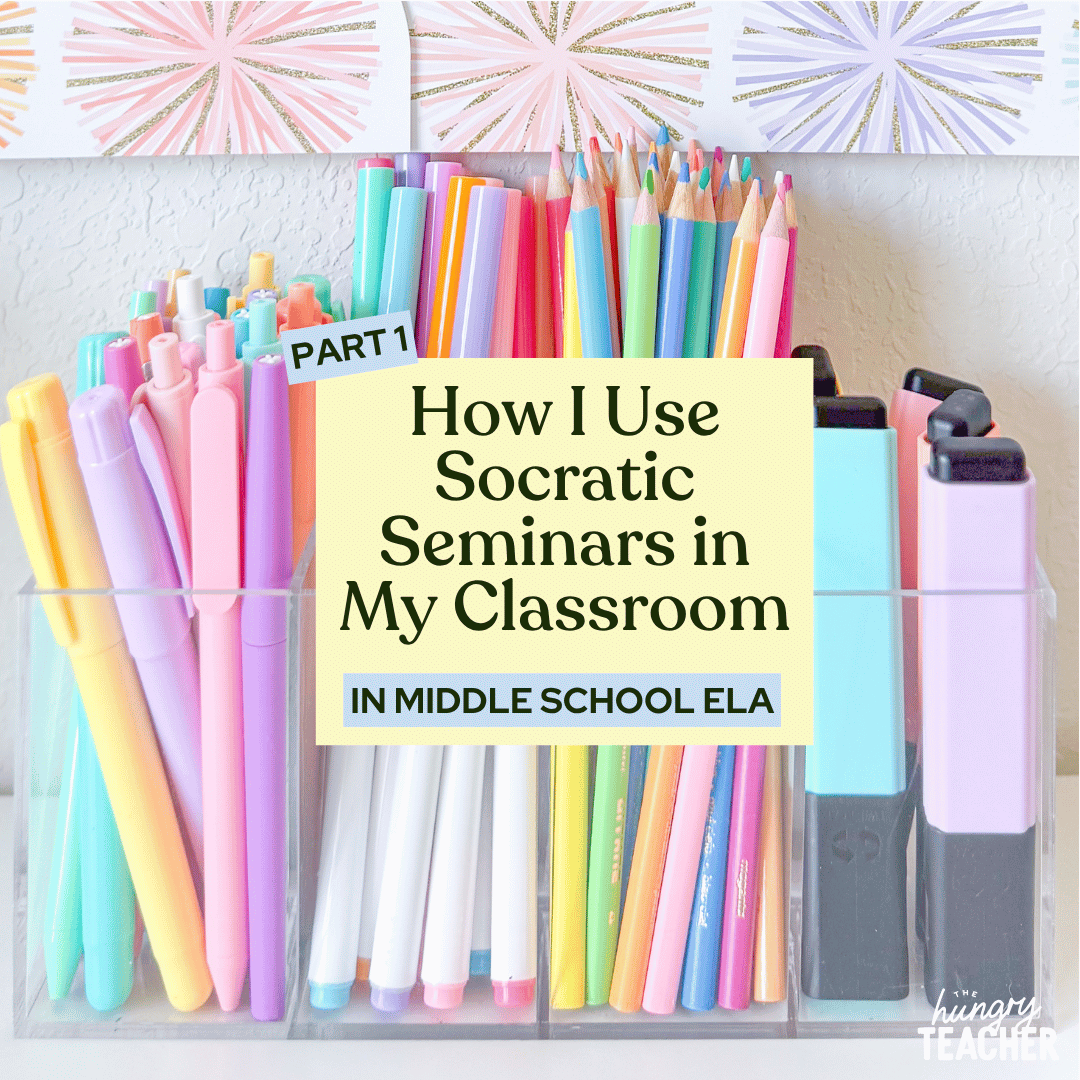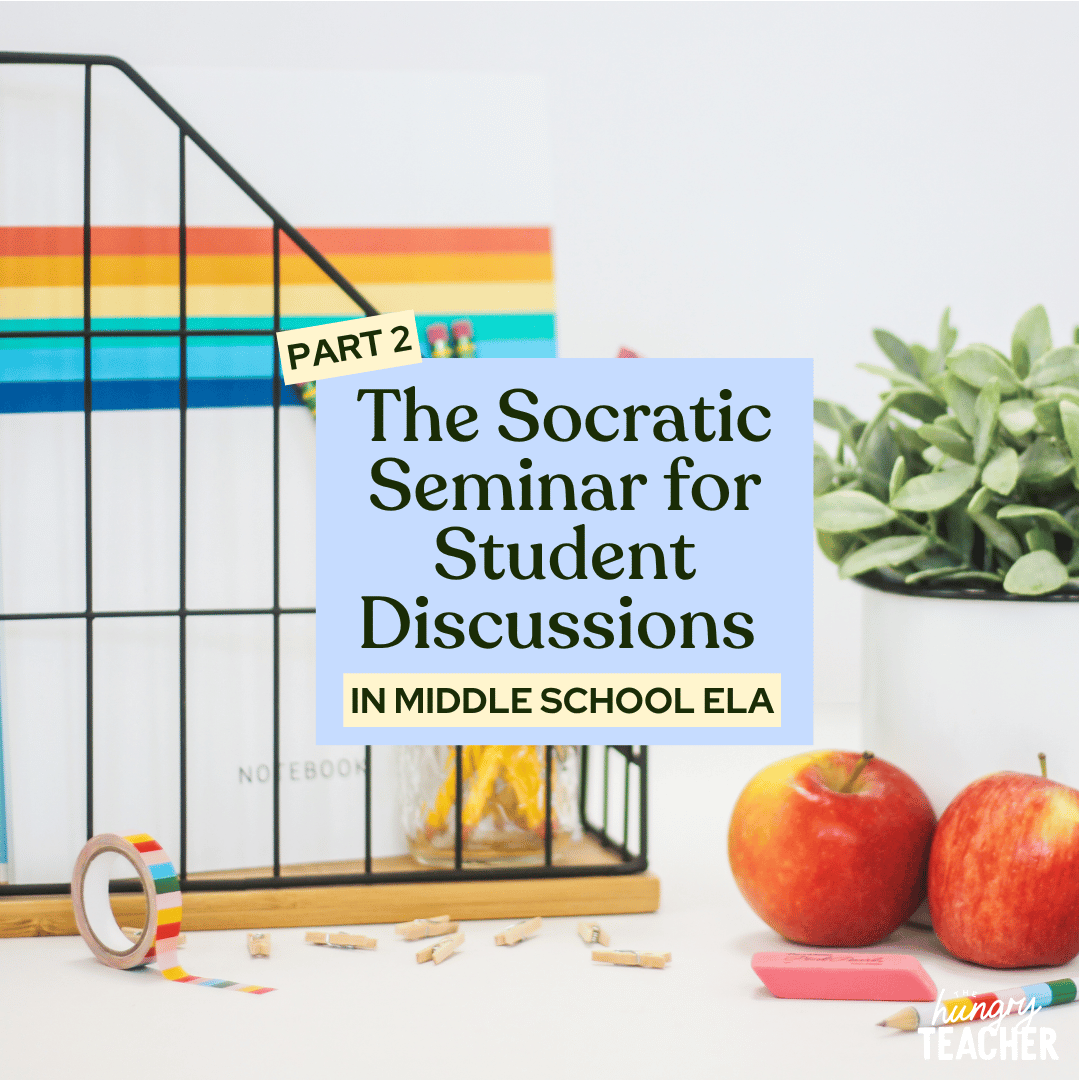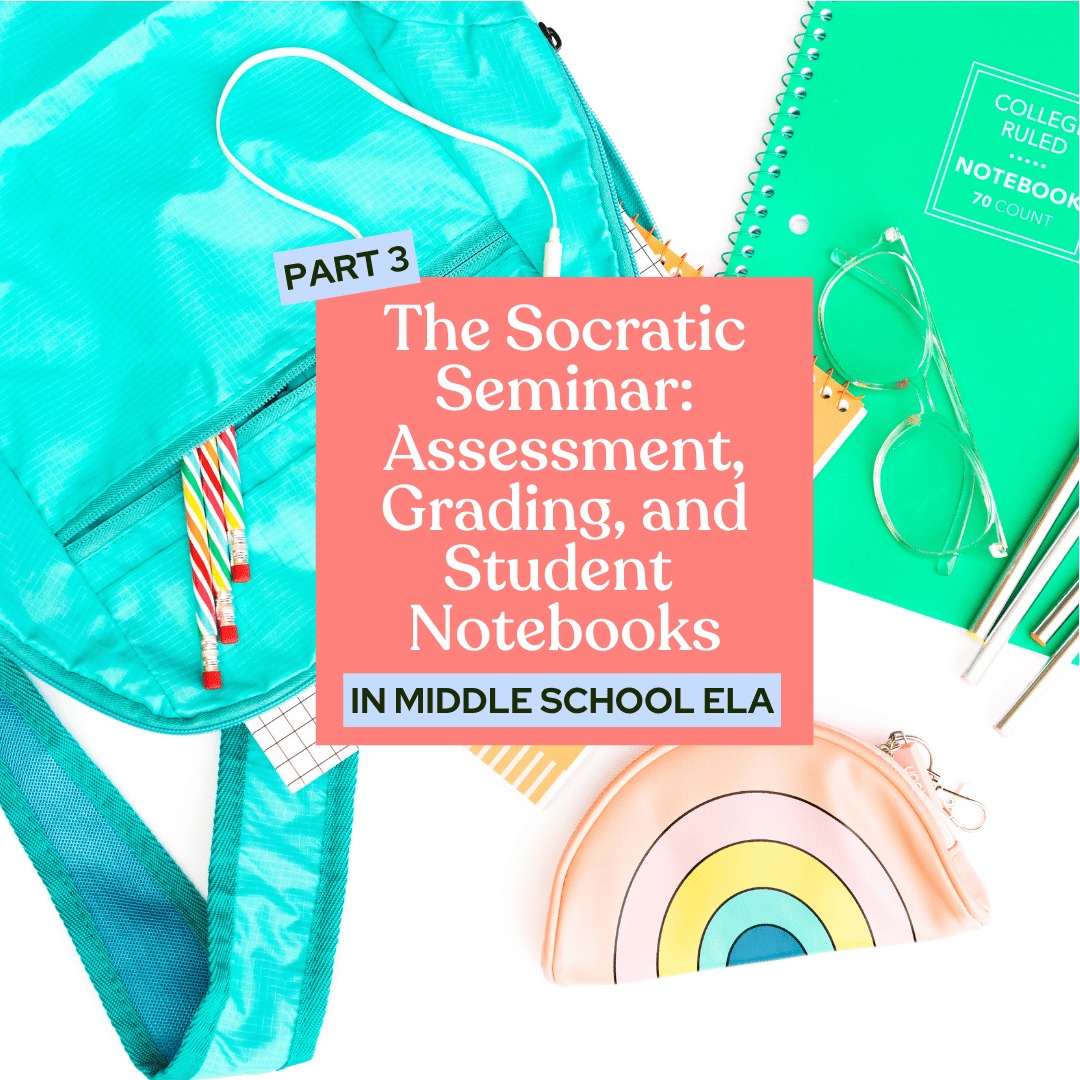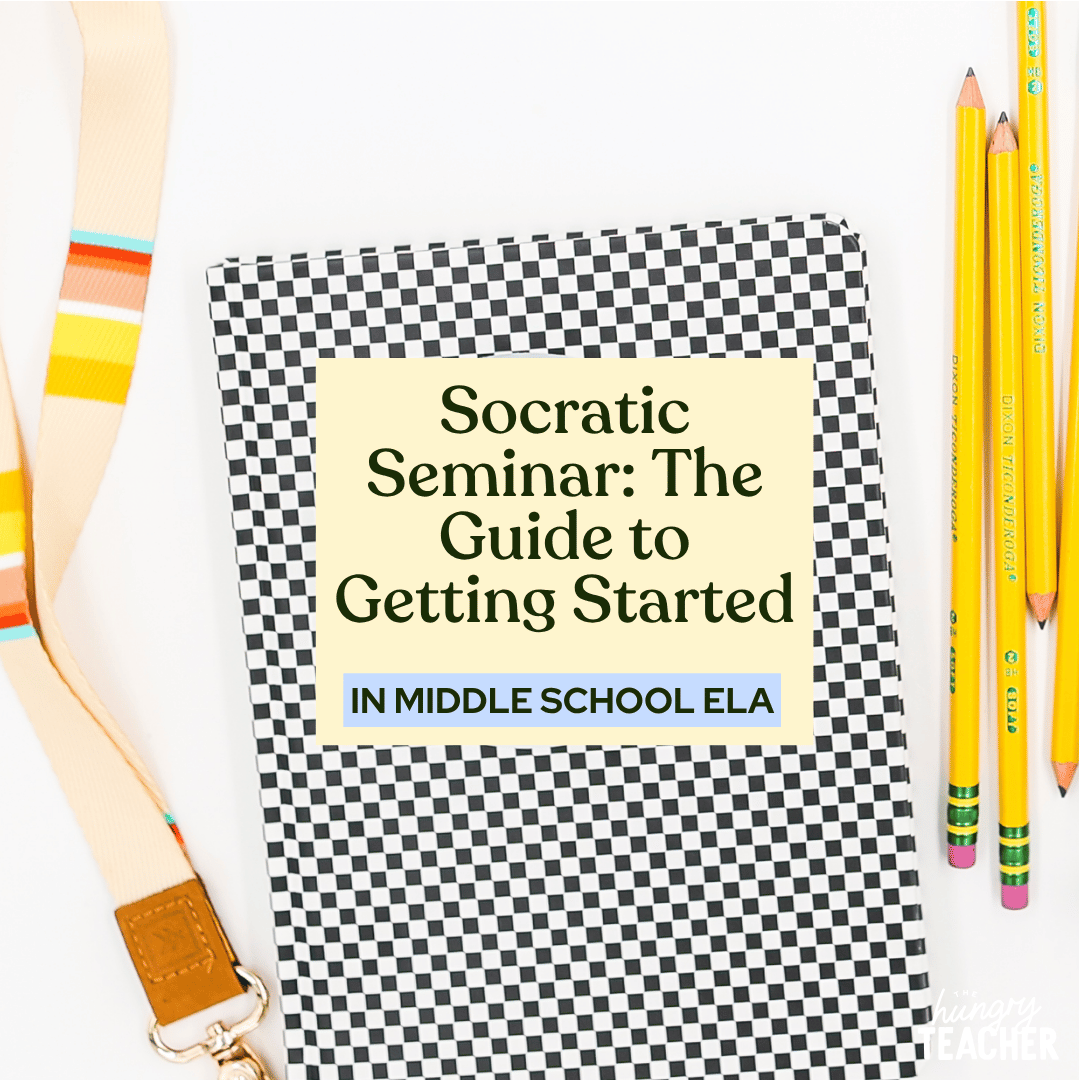hey friend!
I'm Martina.
I provide practical, time-saving strategies that actually work—so you can engage your students, teach effectively, and reclaim your time from the exhausting planning-grading cycle.
Browse Our ELA Resources
The Socratic Seminar for Student Discussions in Middle School and Upper Elementary ELA
Part One: What Is the Socratic Seminar?
If you’ve ever dreamed of students leading meaningful, text-based conversations (while you sit back and take notes instead of calling on hands), then the Socratic Seminar might be your new favorite thing.
In this post, I’m breaking down what the Socratic Seminar actually is, how I first learned about it, and how you can start building this kind of discussion into your reading block.
What Is a Socratic Seminar?
A Socratic Seminar is a structured way to have student-led discussions about a text. The goal isn’t debate or persuasion—it’s exploration and inquiry.
As ReadWriteThink.org defines it,
“Within the context of the student discussion, students listen closely to the comments of others, think critically for themselves, and articulate their own thoughts and responses.”
In my classroom, students usually sit in a circle (or just wherever they’re seated, to save time) and discuss the novel through guiding and interpretive questions that I provide. My job is to facilitate, not dominate—I chart their thinking on the board as they talk.
The purpose? To get students thinking critically, building on one another’s ideas, and deepening their understanding of the text through authentic conversation.
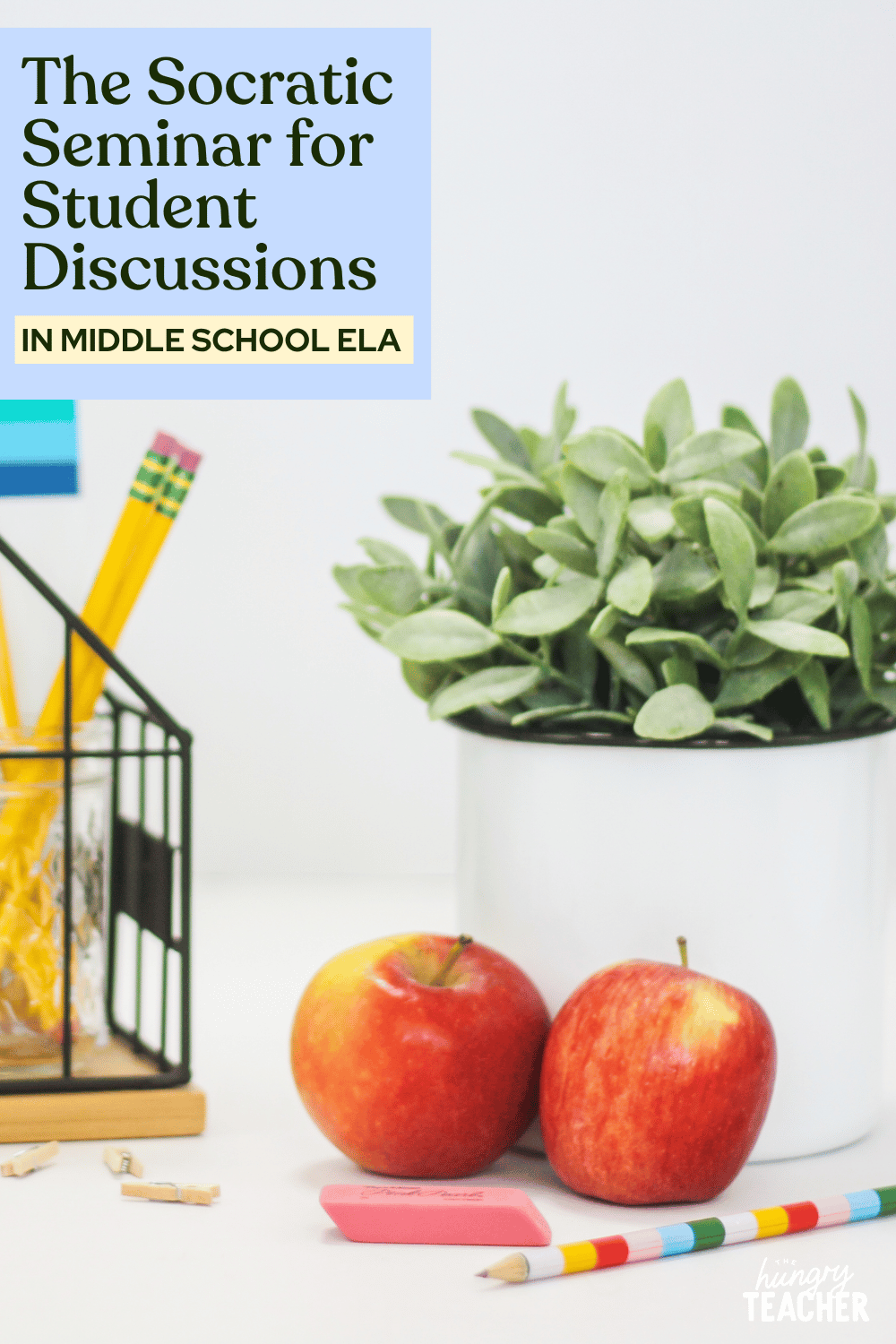
Why a Blog Post About Socratic Seminars?
I’ve been creating reading units—technically not traditional “novel studies”—that use the Socratic Seminar to guide and structure discussion. Over the years, I’ve used this approach across grades 5 through 8, adapting it for different texts and schedules.
You can find all of my Socratic Seminar Reading Units here:
Each one helps teachers move away from surface-level comprehension toward real, text-driven analysis and discussion.
How I Learned to Do Socratic Seminars
During my second year of teaching fifth grade, I was lucky enough to have an incredible teaching partner, Shelly, who had been trained in something called Literacy Studio.
At the time, I was still figuring everything out. Our charter school didn’t have a reading or writing curriculum, so I was using bits of Daily 5, interactive notebooks, and workshop models—but I didn’t yet have a clear system for helping my students think about reading.
Shelly introduced me to the Socratic Seminar through a unit she’d written for The Swiss Family Robinson, and it changed everything. I watched her students have these rich, authentic discussions about literature, and it finally clicked for me:
The goal isn’t to teach the novel—it’s to teach the reader.
That idea has shaped every resource I’ve created since. My reading units are modeled after Shelly’s early design but refined through years of classroom experience and student feedback.
A Clarification Worth Repeating
Shelly and I never set out to “teach novels.”
We set out to teach students—using novels as the tool.
I’m not interested in whether students can recite plot details or pass a quiz. I care that they can:
Think deeply about what they read
Analyze author’s craft
Engage respectfully in discussion
Write with evidence and purpose
When students focus on thinking, the comprehension happens naturally.
How I Use the Socratic Seminar in the Classroom
If we were chatting over coffee and you asked how I use the Socratic Seminar, I’d probably say:
“For basically anything and everything!”
It’s not limited to reading class. The structure—open-ended questions, authentic discussion, teacher as facilitator—works across all content areas.
Here’s what it looks like in action:
Reading: “What character traits do you think you need to survive at Camp Green Lake?” (Holes)
Writing: “Should pit bulls be banned from certain neighborhoods? Why or why not?”
Math: “How do we use fractions in our everyday lives?”
Science: “What would happen if animals and plants didn’t adapt?”
Social Studies: “Do you think it was right for settlers to take land from Native Americans? Why or why not?”
The beauty of the Socratic Seminar is that students drive the conversation while I guide with questions and jot notes on the board. They later use that shared thinking to craft stronger, more thoughtful written responses.
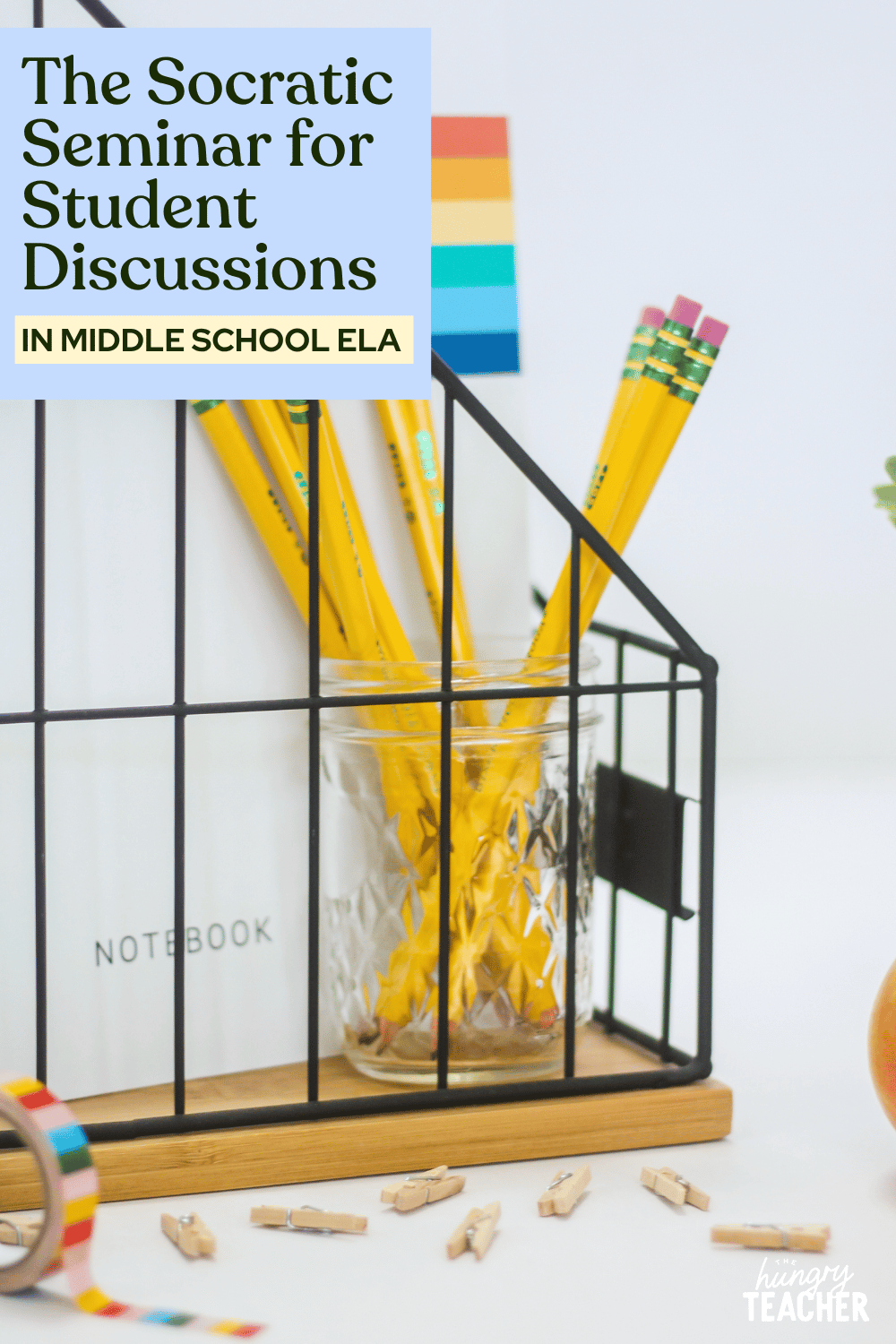
The Research Behind Socratic Seminars
Socratic Seminars are named for their connection to Socrates’ belief in the power of questions.
The goal is inquiry over information and discussion over debate.
This approach aligns with thinkers like John Dewey, Lev Vygotsky, Jean Piaget, and Paulo Freire, who emphasized that learning is a social process.
As Elfie Israel explains in Inquiry and the Literary Text (2002):
“Students learn to work cooperatively and to question intelligently and civilly.”
In short, students don’t just learn about the text—they learn how to think.
Steps for a Successful Socratic Seminar
You can use this model in almost any subject area, but here’s the general framework that sets students up for success:
1. Prep Work
Choose the Text: Use authentic texts that invite inquiry and multiple interpretations
Prepare the Students: Let them know when discussions will happen. Encourage annotation and sticky-note marking as they read.
Prepare the Questions: Start with open-ended, text-connected questions that don’t have a single right answer. Tie the first and last questions to real-world ideas students can relate to.
2. Establish Roles
Set Student Expectations: Work together to define norms for respectful, collaborative discussion. Compare debate behaviors (persuasion, rebuttal, taking sides) with discussion behaviors (building ideas, inquiry, communal thinking).
Define Your Role: You’re the guide, not the star. Resist the urge to jump in and correct. Ask questions like, “Do we need to revisit the text?” or “Does anyone see a different perspective?”
Reflection and Assessment: After the seminar, students reflect on their participation, set goals for next time, and write about what they learned. The reflection is often more valuable than any “grade.”
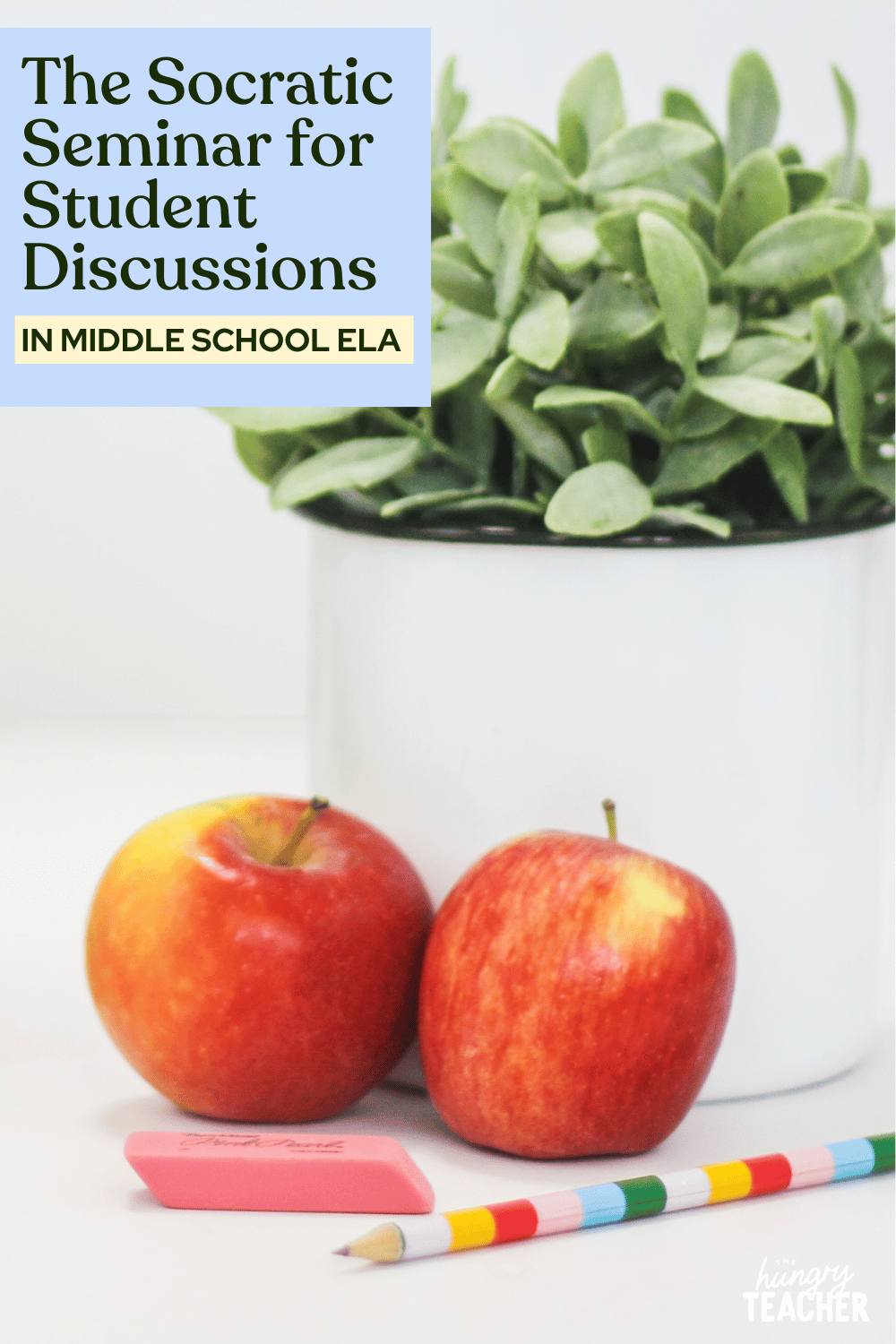
Why the Socratic Seminar Works
The Socratic Seminar builds a classroom culture of curiosity and respect. It teaches students that learning happens through dialogue—not lecture.
It helps them:
Think critically and question intentionally
Listen actively to peers
Support ideas with evidence
Engage in civil, thoughtful discourse
And for teachers, it’s one of the few methods that balances academic rigor with authentic engagement.
Related Posts
Want a sneak peek at teaching The Hungry Teacher way—with support, structure, and strategy?
When you join the waitlist for The Hungry Teacher’s Hub membership, you get three free classroom-ready resources: a theme unit, an expository writing unit, and a grammar unit introducing mentor sentences. Plus, you’ll get immediate access to a selection of exclusives from the Hub, including editable sub plans, pacing guides, and more.
No strings attached. Just resources you can use right now—and a heads-up when the Hub opens.
3 Free Middle School ELA Units—yours to keep!
JOIN THE WAITLIST + A FREE GIFT
Where to next, line leader?
Welcome to The Hungry Teacher! We create resources that are easy to use, practical, and get results. Teach with confidence—and make it home before dinner.
xo, the hungry teacher
